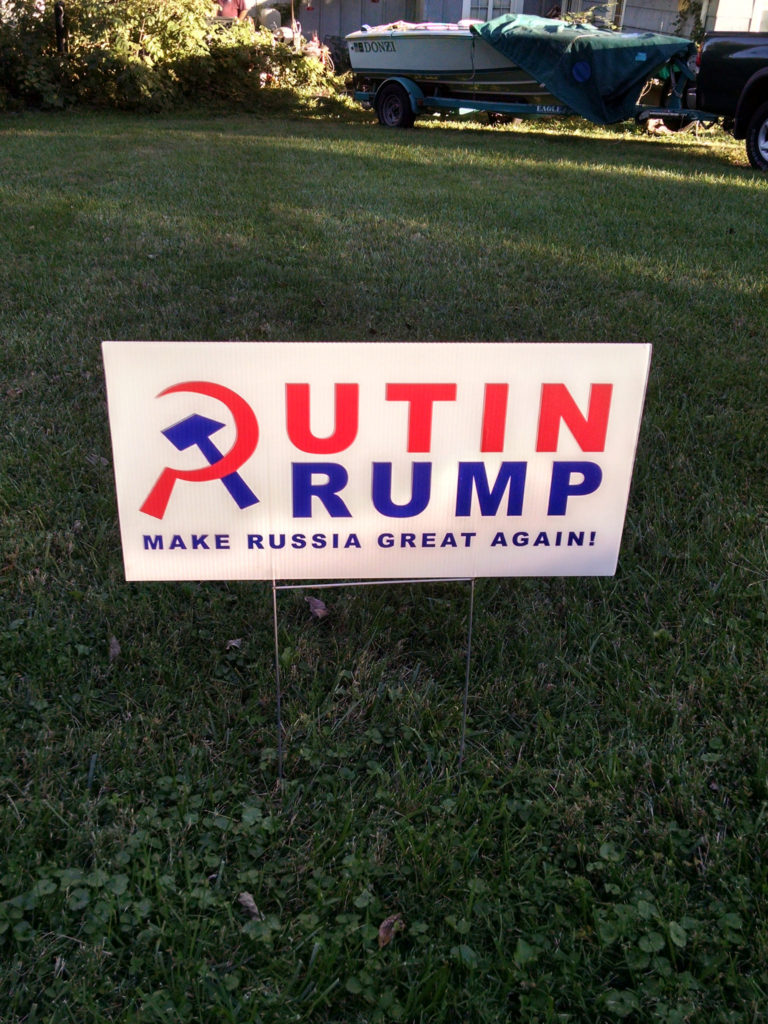Trump’s Russia and Putin’s America
President-elect Donald Trump’s comments on Russian President Vladimir Putin have been a hot topic of discussion for months now. Trump has praised the Russian president’s leadership skills, noting that a renewed US-Russian cooperative relationship would be beneficial to both countries and to the world, specifically when it came to fighting ISIS. A Russian hack on the Democratic National Committee that resulted in thousands of leaked internal e-mails may have also influenced the election in Trump’s favor, leading to questions about the Putin-Trump relationship and concerns over election ballot hacking. Now that Trump stands to assume the presidency in a little less than two months, many Americans wonder what our future relationship with Russia will be. In order to understand what may come in the future, it is important to understand the beginnings of the Russian Federation – and how the United States may have had something to do with Russia turning from the West in the early 1990s.
Following the collapse of the Soviet Union, the Russian Federation was largely down and out in the world. It had lost the international respect, power, and status that it had enjoyed for hundreds of years, first as the tsarist Russian Empire and then the communist superpower of the Soviet Union. Faced with a different set of norms and a singular superpower – the United States – Russia had to begin its struggle for a post-Soviet identity. Having felt ostracized for its communist system of government, Russia made numerous attempts to reach out to the West – expressing a desire to join NATO in the future, becoming a full participant in international organizations, praising the United States in every United Nations speech, and discussing their commitment to human rights and democracy. Russia counted itself among Western great powers, and from how it presented itself on the international stage, it wanted to be a part of the Western world.
Despite Russia’s desire to enter the Western world, the United States did not harbor the same sentiment. Throughout UN speeches in the 1990s, the US and the UK largely categorized Russia with the East while remarking on their own success for defeating communism and promoting democracy. On the international stage, despite the US saying that looked forward to a more positive and cooperative relationship with Russia, the US was reluctant to allow Russia into the club it was in charge of. In 1992 at the UN, U.S. President George H.W. Bush remarked that “realism requires us to remain vigilant in this time of transition: the danger of proliferation remains,” referring the Russia and other post-Soviet republics. In contrast, Russian President Boris Yeltsin discussed his hopes for the closing of the “abyss” between Russia and the US, asserting that “Russia regards the United States and the West not as mere partners but rather as allies” and declared that “the world community will find in Russia…a firm and steadfast champion of freedom, democracy, and humanism.” Prime Minister John Major of the United Kingdom, in his address, classified Russia as part of the East, rather than the West, despite Yeltsin’s clear desire to join the West. Western rhetoric provided a suspicious tone, acknowledging of Russia’s reforms but mistrustful of the new Russia, suspicions that Yeltsin asserted were “unjustified.”
In response to a lack of Western acceptance, Russia did not end up moving toward the democratic ideals that the US encouraged – eventually Russia moved back to striving to become a regional power, and moved away from the democratic and human rights principles it had internationally committed to. Russian diplomats asserted that they were the regional peacekeepers of the former Soviet bloc, and dropped references to democracy in their foreign policy concepts of the late 1990s, declaring themselves and “influential European and Asian power” in their 1997 foreign policy concept. We can see effects of this in our current relationship with Russia – Russia has returned to striving toward regional hegemony with their 2014 invasion of Ukraine, and our slow and ineffective talks with Russia about the Syrian crisis.
Trump’s election may indicate a change in the US-Russian relationship, but the question is whether or not this will benefit the US in the way Trump believes it will. A renewed US-Russian relationship in the manner in which Trump wants – a strong partnership with the country and a close friendship with Putin – may not pull Russia toward the West, but rather push America away from its current Western allies. Many in West do not support Putin, and find his policies concerning; an America that aligns with Russia may find itself lacking the international support it tends to enjoy from other democracies.





